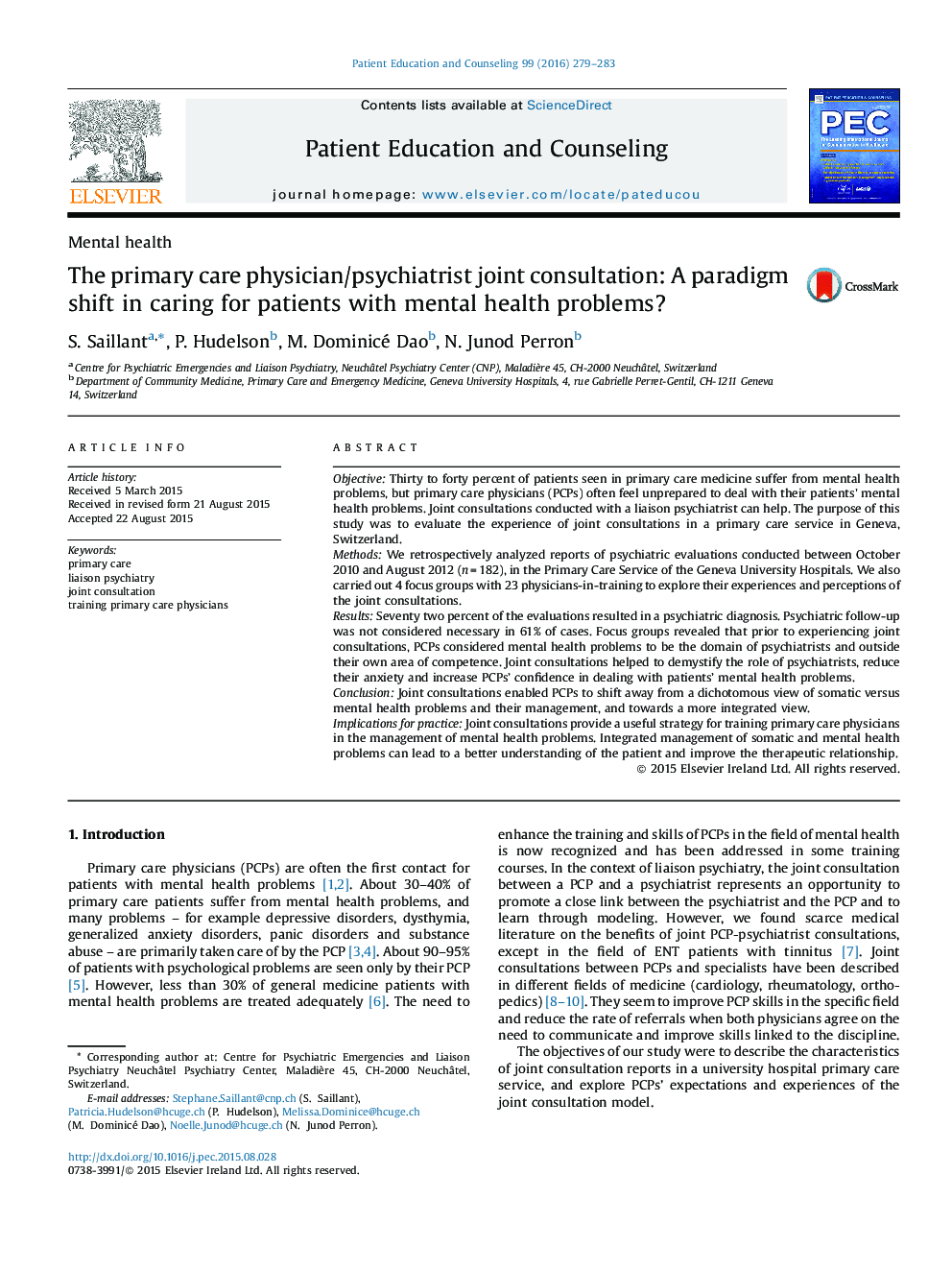| Article ID | Journal | Published Year | Pages | File Type |
|---|---|---|---|---|
| 3816138 | Patient Education and Counseling | 2016 | 5 Pages |
•The joint consultation with a psychiatrist reinforces primary care physicians’ skills and confidence in mental health problems.•The joint consultation with a psychiatrist demystifies the psychiatric interview.•The joint consultation with a psychiatrist helps shift towards a more integrated view of somatic and mental health problems.
ObjectiveThirty to forty percent of patients seen in primary care medicine suffer from mental health problems, but primary care physicians (PCPs) often feel unprepared to deal with their patients' mental health problems. Joint consultations conducted with a liaison psychiatrist can help. The purpose of this study was to evaluate the experience of joint consultations in a primary care service in Geneva, Switzerland.MethodsWe retrospectively analyzed reports of psychiatric evaluations conducted between October 2010 and August 2012 (n = 182), in the Primary Care Service of the Geneva University Hospitals. We also carried out 4 focus groups with 23 physicians-in-training to explore their experiences and perceptions of the joint consultations.ResultsSeventy two percent of the evaluations resulted in a psychiatric diagnosis. Psychiatric follow-up was not considered necessary in 61% of cases. Focus groups revealed that prior to experiencing joint consultations, PCPs considered mental health problems to be the domain of psychiatrists and outside their own area of competence. Joint consultations helped to demystify the role of psychiatrists, reduce their anxiety and increase PCPs’ confidence in dealing with patients’ mental health problems.ConclusionJoint consultations enabled PCPs to shift away from a dichotomous view of somatic versus mental health problems and their management, and towards a more integrated view.Implications for practiceJoint consultations provide a useful strategy for training primary care physicians in the management of mental health problems. Integrated management of somatic and mental health problems can lead to a better understanding of the patient and improve the therapeutic relationship.
